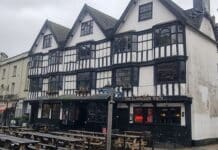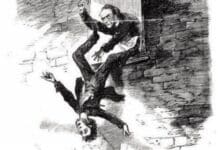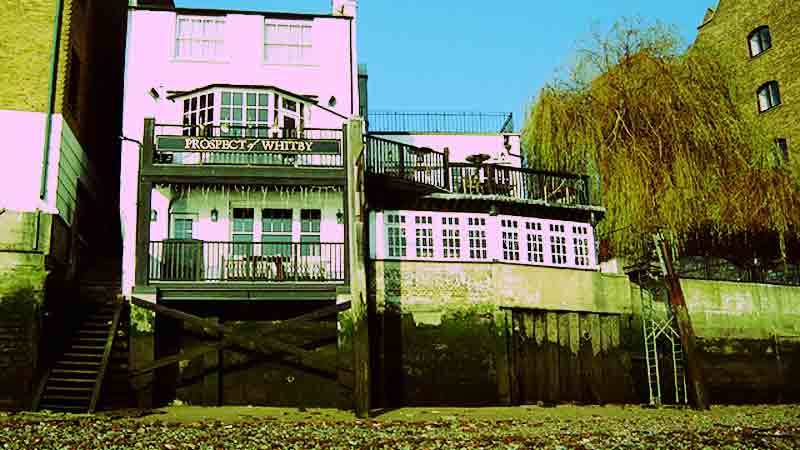Edward ‘Blackbeard’ Teach, the terror of the seas, left behind not only a fearsome pirate legacy but also tales of ghostly hauntings that still send shivers down sailors’ spines today
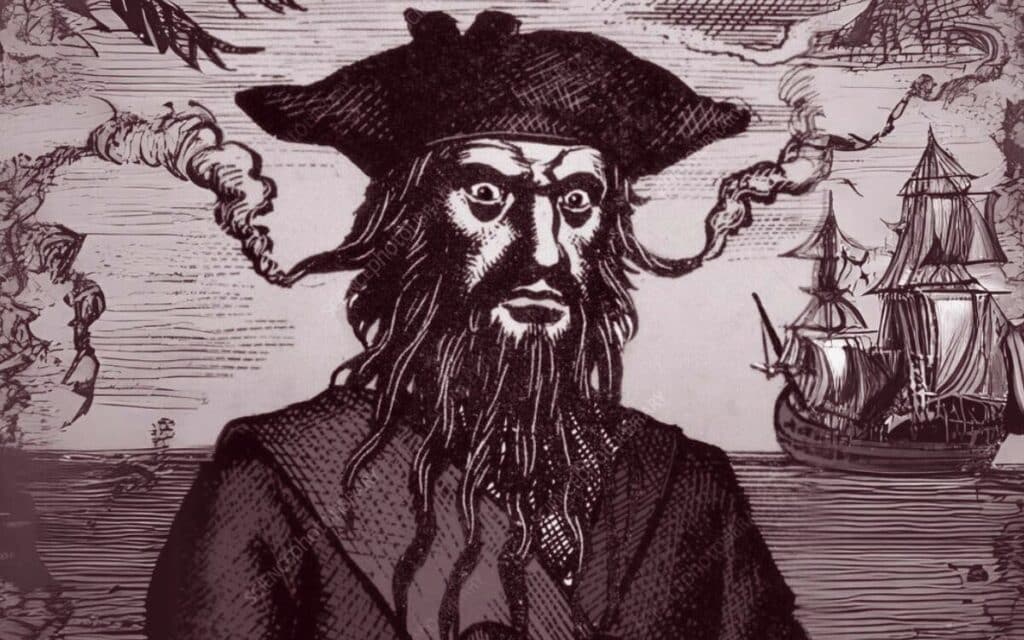
Who was Edward Teach, aka Blackbeard?
Few scoundrels of the sea loom as large as Edward Teach, better known as the dread pirate, Blackbeard!
With his wild black beard, fiery fuses tucked in his hat, and a reputation fierce enough to turn the stoutest sailor’s blood to ice, Blackbeard has become the very spirit of piracy.
But behind that fearsome, devilish image lies the tale of a complex man – a Bristol-born privateer who turned pirate, and whose dark deeds and grisly death etched his name into legend.
From blockading ports to battling the mighty British Navy, his story is one of power, terror, and a ghostly legacy that still haunts the waters he once ruled!
Blackbeard’s Bristol Beginnings
Though much of Blackbeard’s early life remains a mystery, many believe the rogue hailed from Bristol, one of England’s bustling ports in the late 17th century.
Born around 1680, Edward Teach (or Thatch, as some records whisper) may have been the son of a relatively well-to-do family. He was even thought to have some education, a rare treasure among pirates, which gave him the ability to read and write.
Bristol, a port full of trade – and a fair share of smuggling – was likely where young Teach sharpened his seafaring skills.
He first sailed as a privateer during Queen Anne’s War (1702–1713), where British sailors were licensed to plunder enemy ships.
But when the war ended, many privateers, including Teach, found themselves adrift. So, they turned to piracy, where the only rules were those they made themselves!
By 1716, Teach had found himself under the command of the infamous pirate Benjamin Hornigold, operating from the pirate haven of New Providence in the Bahamas.
Teach swiftly proved himself, rising through the ranks with a sharp mind for strategy and a commanding presence. Soon, he had his own ship under his command.
But it was when he captured the French vessel La Concorde, turning it into the fearsome Queen Anne’s Revenge, that the seas truly began to tremble at the name Blackbeard!
The Reign of Terror on the High Seas
The Queen Anne’s Revenge – a name not chosen lightly – hinted at Blackbeard’s lingering support for the ousted Stuart Queen Anne, and a simmering grudge against Britain’s new rulers.
Armed with 40 cannons and a crew of more than 300 bloodthirsty rogues, Blackbeard’s ship was a sight to strike terror into any sailor’s heart!
In May 1718, Blackbeard made his most daring move yet, blockading the port of Charles Town (modern-day Charleston, South Carolina).
For an entire week, no ship could enter or leave without facing his flotilla.
What did he demand in ransom? Medicine for his crew. Though he took valuables from his captives, he kept the bloodshed to a minimum.
Fear and reputation were his real weapons, often securing what he wanted without firing a shot.
Blackbeard didn’t just rule the seas – he ruled the minds of his enemies. His look was carefully crafted for terror.
Tying smouldering fuses into his beard, he would light them during battle, giving the impression that the very fires of Hell burned around him.
Witnesses described him as a towering figure, with wild eyes and a beard braided with ribbons. But despite the devilish appearance, there’s no record of Blackbeard ever killing his captives.
His true weapon was fear, and he wielded it like a sword.
The Ghost of Blackbeard
Alas, no pirate reigns forever. By 1718, Blackbeard’s exploits had drawn the wrath of the British. Virginia’s Governor, Alexander Spotswood, was particularly keen to see the pirate’s head mounted on a spike.
He sent a naval force, led by Lieutenant Robert Maynard, to hunt down the pirate.
On 22 November 1718, Blackbeard’s fate was sealed in a bloody battle off the coast of North Carolina, at Ocracoke Inlet.
Maynard’s men stormed Blackbeard’s sloop, Adventure, and after a fierce fight, the pirate fell – riddled with five gunshot wounds and more than 20 sword cuts. His head was severed and displayed on Maynard’s ship as a grim trophy, a warning to all who dared follow in Blackbeard’s path.
But Blackbeard’s body may have been laid low, yet his spirit – ah, that’s another tale!
Even after death, legends say Blackbeard’s ghost still roams the seas. Some claim ghostly lights can be seen flickering off Ocracoke Island near North Carolina – known as “Teach’s Light” – as Blackbeard’s restless spirit searches for his lost head.
Other tales tell of his headless body swimming around Maynard’s ship before sinking into the depths, or of his ghost stalking the Carolina coast in search of vengeance or treasure.
To this day, sailors whisper of the spectral beacon, a chilling reminder that the ghost of Blackbeard still sails these waters.
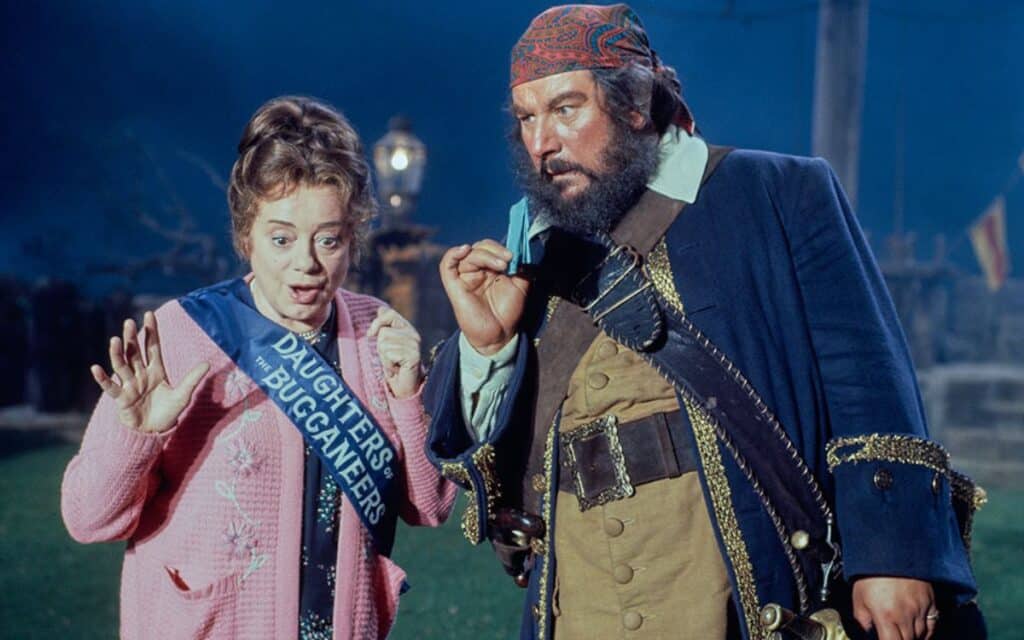
The Lasting Legacy of Blackbeard
Though Blackbeard’s pirate life was brief, his legacy endures through the ages, shaping the very image of pirates in our imagination.
From the pages of Treasure Island to the blockbuster Pirates of the Caribbean, the towering figure of Blackbeard haunts the seas of popular culture.
Even Disney’s Blackbeard’s Ghost in 1968 brought a touch of humour to his restless spirit. But make no mistake – his legend, and the tales of his ghost, live on.
Even today, the name Blackbeard sends shivers down the spine, a chilling reminder of when the seas belonged to pirates – and one Bristol-born buccaneer ruled them all!
What did you think of this tale of Blackbeard’s fearsome deeds and ghostly hauntings? Tell us in the comments below!



